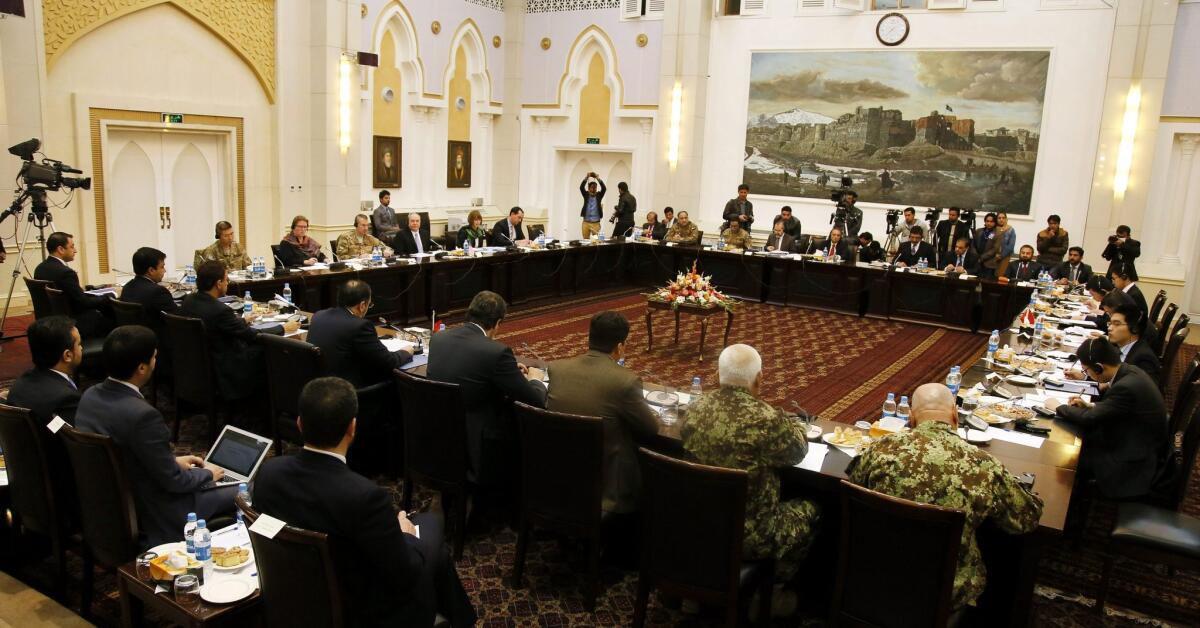Taliban dampens hopes for peace talks in Afghanistan

A four-nation group met in Kabul on Feb. 23 to discuss how to resume broken peace talks between the Afghan government and Taliban insurgents.
Clouding hopes for an end to the escalating violence in Afghanistan, the Taliban on Saturday said its leaders would not sit down for scheduled face-to-face talks with the Afghan government.
In a statement released on its website, Afghanistan’s largest armed opposition movement unequivocally rejected reports that it would partake in direct talks with the Afghan government that had been expected to begin as early as Monday in Islamabad.
“We reject all such rumors and unequivocally state that the esteemed leader of Islamic Emirate has not authorized anyone to participate in this meeting and neither has the Leadership Council of Islamic Emirate decided to partake in it,” the group said in the statement.
The group said its political office had “not been kept informed about negotiations from the onset,” a reference to the fact that the Taliban had not been involved in a series of four-party meetings — involving representatives from Afghanistan, China, the United States and Pakistan — that have attempted to lay the groundwork for talks between the government and the armed opposition.
The group also said it would not negotiate until the “occupation” of Afghanistan comes to an end.
“America is deploying fresh troops to Afghanistan, is carrying out airstrikes in various areas and partaking in night raids.”
There are more than 9,000 U.S. troops remaining in the nation.
The Taliban also repeated calls for its leaders to be removed from United Nations blacklists and for its prisoners to be freed from U.S. detention in Guantanamo Bay, in Cuba, and in an Afghanistan-run detention facility near Bagram Airfield in Afghanistan.
Last year, representatives from the Kabul government and the Taliban did sit down for face-to-face talks in Pakistan, but the process came to an immediate halt after it was announced that Mullah Mohammad Omar, the group’s founder and long-time leader, had died in 2013.
Afghanistan President Ashraf Ghani has expressed optimism about prospects for a new round of peace talks, but several high-ranking officials, including members of his own national unity administration, have taken a much more critical view.
Critics point out that the Taliban now controls more land than at any time since the U.S.-led invasion of 2001 meant to topple its government. The group also has been able to shift the battle from fighting in rural areas during the spring and summer to increased targeting of urban centers, continuing battles well into the cold winter months.
Latifi is a special correspondent.
More to Read
Sign up for Essential California
The most important California stories and recommendations in your inbox every morning.
You may occasionally receive promotional content from the Los Angeles Times.










